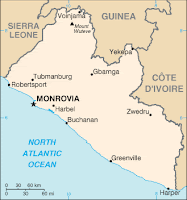Full Story:
http://www.edmontonjournal.com/news/Alberta+Education+investigates+rumours+exam+cheating/2486975/story.html
After fact-checking this story, as far as I know it is accurate. The story is about an allegation of cheating, and is difficult to prove true or false. Zoe Cooper is the Public Affairs Officer at the Government of Alberta, and she is called the “department spokeswoman” in the article. Cory Sinclair is an Edmonton Public Schools spokesman. Both names are spelt correctly in the article. I could not find a way to verify the exact number of students that wrote the exam. Also, I could not find any news articles that spoke about the 2001 cheating incident in St.Albert.
Accuracy is imperative in journalism, because it creates a trust and respect relationship between the writer and the reader. If a writer uses inappropriate or rudimentary grammar, then they lead the reader to believe that they are inappropriate or rudimentary, not to mention unintelligent. The consequence to that is then the reader no longer respects what they write, no matter how true or worthy their opinion.
http://www.edmontonjournal.com/news/Alberta+Education+investigates+rumours+exam+cheating/2486975/story.html
After fact-checking this story, as far as I know it is accurate. The story is about an allegation of cheating, and is difficult to prove true or false. Zoe Cooper is the Public Affairs Officer at the Government of Alberta, and she is called the “department spokeswoman” in the article. Cory Sinclair is an Edmonton Public Schools spokesman. Both names are spelt correctly in the article. I could not find a way to verify the exact number of students that wrote the exam. Also, I could not find any news articles that spoke about the 2001 cheating incident in St.Albert.
Accuracy is imperative in journalism, because it creates a trust and respect relationship between the writer and the reader. If a writer uses inappropriate or rudimentary grammar, then they lead the reader to believe that they are inappropriate or rudimentary, not to mention unintelligent. The consequence to that is then the reader no longer respects what they write, no matter how true or worthy their opinion.



